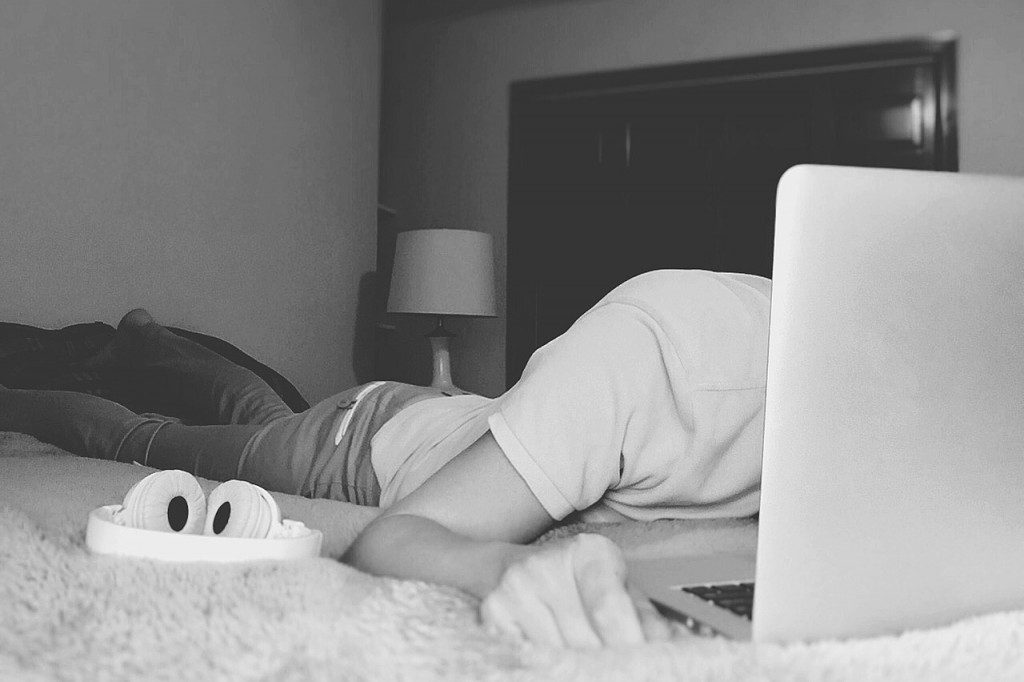
By Timothy Askew; reprinted from Inc. with the kind permission of Timothy Askew.
There was an interesting article by Sue Shellenbarger in The Wall Street Journal last year about the increasing amount of work being performed in bed. It has a lot to say about several things, including the increasingly international nature of even small business, as well as physical health and implications of omnipresent technology for personal relationships.
Ms. Shellenbarger reports, “Researchers who study work habits say a new generation reared on mobile devices is increasingly accustomed to using them while propped against pillows, lying down, or in a fetal curl.” For example, 500 workers out of 1000 polled by Good Technology, a mobile-security software company, say they read and respond to business email from bed. Another study of British workers discovered one in five employees spends between two and ten hours per week working from bed. Or, annecdotally, take Laura Stack, a Denver productivity expert, who has seen a doubling of clients who work from the sleep space.
There are a number of reasons for this. One prime reason is simply that we live in an increasingly “flat earth” world where business is a 24 hour a day proposition. In such a world it is sometimes de rigueur to communicate at odd hours by conference call or email. To fully service an international clientele with sensitivity and courtesy it may mean conveniencing your client’s business hours, not your own.
Another reason is simply device addiction, an increasing phenomenon. Dan Sieberg, a technology reporter and ABC News contributor, wrote a book a couple of years ago called The Digital Diet in which he discussed his compulsive use of email, handhelds, Facebook, Twitter, LinkedIn, iPhones, BlackBerries, etc. He wrote his book after finding himself taken over by technology in every aspect of his life. He states, “My wife had a nickname for me, ‘Glowworm,’ because my face was constantly illuminated by some sort of screen in bed.”
The implication for relationships of this phenomenon is pretty obvious. It’s not too sexy or conducive to any sort of intimate personal communication with whoever shares your bed.
But perhaps the most deleterious effect of pillow technology on the bedtime entrepreneur is its simple physical implications. It’s damn uncomfortable and leads to all sorts of aches and pains. Ergonomics experts particularly warn about the lumbar implications of multitasking for long periods of time in bed.
Finally, technology enabled bedtime work encourages insomnia. Sue Shellenberger cites Russell Rosenberg of the National Sleep Foundation who says light from our screens suppresses the sleep hormone melatonin.
Yet, if you feel you still just have to bring your technology to bed with you, Ms. Shellenberger does offer some succor for bed workers by noting an increasing number of specialty products from customized beds to laptop lifters to detachable keyboards. (See WSJ article cited above.)
My advice? Work where you work and sleep where you sleep and n’er let the twain interface. For, as William Shakespeare puts it in Macbeth:
“Sleep that knits up the ravelled sleave of care,
The death of each day’s life, sore labour’s bath,
Balm of hurt minds, great nature’s second course,
Chief nourisher in life’s feast.”
Thanks, Will.
Image: Pixabay.
 Tim Askew is the owner of sales firm Corporate Rain International and a member of the Inc. Business Owners Council. He has several advanced degrees, and has been a tennis pro, actor, opera singer, Broadway producer, dishwasher, bartender, minister, and college assistant dean. Askew is the author of the new book The Poetry of Small Business (available on Amazon). @TimothyAskew
Tim Askew is the owner of sales firm Corporate Rain International and a member of the Inc. Business Owners Council. He has several advanced degrees, and has been a tennis pro, actor, opera singer, Broadway producer, dishwasher, bartender, minister, and college assistant dean. Askew is the author of the new book The Poetry of Small Business (available on Amazon). @TimothyAskew












